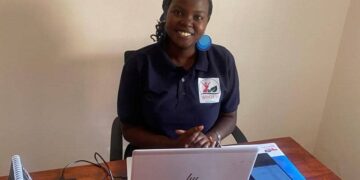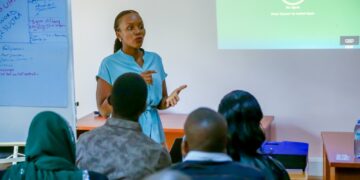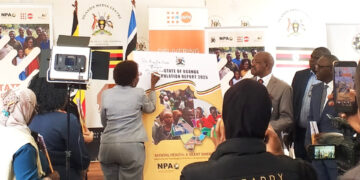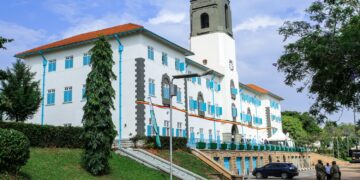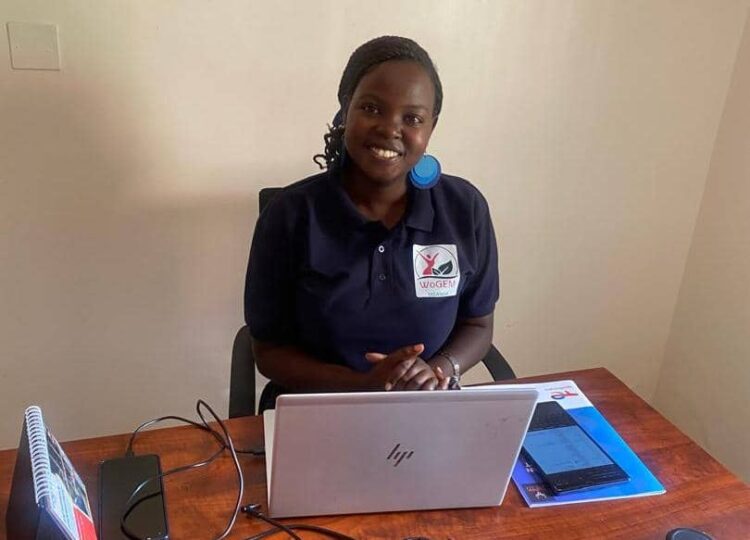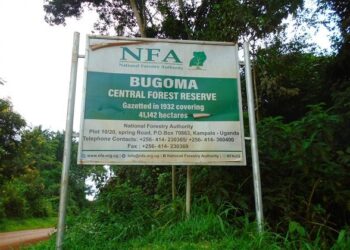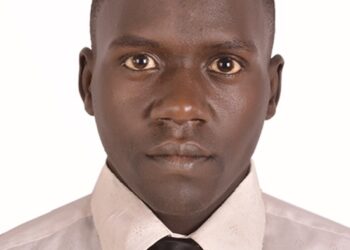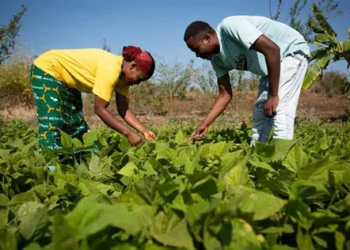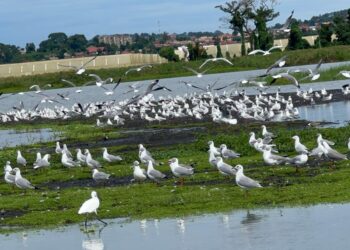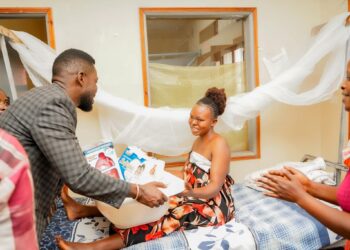OPINION
As we come to the end of mental health month it is the time to highlight the silent crisis that is unfolding among the marginalised women in Uganda’s oil host communities.
When the East African Crude Oil Pipeline (EACOP) was first announced, it came covered in the promise of development and job creation though it was developed with destruction. But for most marginalized women in oil corridors especially those in rural areas of Kijjumba, Kyakatemba and Nyairongo, hoima district where this pipeline has brought something far less discussed anxiety, grief, and emotional trauma.
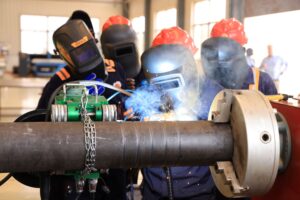
As the project gets through fertile farmlands for Agriculture and livestock, ancestral homes, displacing families and upsetting livelihoods, a mental health crisis is quietly unfolding. Adding this to the relentless stress of climate change erratic rainfall, prolonged droughts, and shrinking harvests and what emerges is a storm for psychological distress. For Uganda’s marginalized women in the climate change prone areas, the impacts are profound, yet invisible in mainstream discourse.
Most marginalised women and girls affected by EACOP are never land title holders but they are caretakers, farmers, herbalists, and providers for the families. Their identities and sense of purpose are deeply tied to the land. When their families are displaced for the construction for the pipeline, these women are not only just losing physical space but also losing livelihoods, social networks, and the emotional security that comes from a sense of place.
Now living in resettled communities, most of them face isolation, food insecurity, and dependency on male decision-makers, who often received compensation in their names and are now suffering the consequences of limited decision making in their homes. Marginalised women are feeling powerless and voiceless emotions are breeding grounds for depression, anxiety, and post-traumatic stress.
On top of the dislocations from EACOP, climate change has made rural survival even more precarious. Failed crops from unseasonal rains, dried-up wells, and rising food prices have forced women to make impossible choices of skipping meals so that children and their husbands can eat, walk long distances looking for water for domestic use and sell off household items to afford basics.
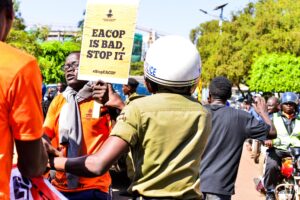
The emotional toll of watching one’s children go hungry and a feeling of being unable to fulfill traditional roles as providers and nurturers is immense. For most marginalised women they see that the earth no longer offers security but it offers stress.
Mental health in Uganda is still stigmatized, underfunded, and poorly understood. For marginalized women often poor, uneducated, living in male-dominated households suffering domestic violence related issues there is little room to express mental distress and later alone seek help.
Marginalised women often suffer in silence others internalize the trauma, expressing it through physical symptoms like chronic fatigue , migraines and headache. Community health systems, where they exist are rarely equipped to respond. Yet psychological well-being is foundational to resilience, economic, social, and environmental.
We cannot talk about energy projects or climate adaptation without talking about mental health, and we cannot talk about mental health without addressing gender inequality.
The EACOP project must be held accountable for its social and psychological impacts. Compensation must go beyond cash it must include psychosocial support, especially for marginalised women in oil host communities. Community mental health services should be integrated into resettlement plans, and women should be engaged as agents of recovery, not just victims.
The women of Uganda’s oil-affected regions are not only climate defenders, unpaid caregivers, and environmental stewards but they deserve healing, not just handouts.
As we push for a just energy transition, we must recognize that mental health is climate justice. Until the grief of the displaced woman is seen, heard, and addressed, no project no matter how profitable can claim to be just.
By Ainembabazi Shallon,
The writer is a Programs officer at Women for Green Economy Movement (WOGEM) Uganda.
E-mail: shaciaine@gmail.com
